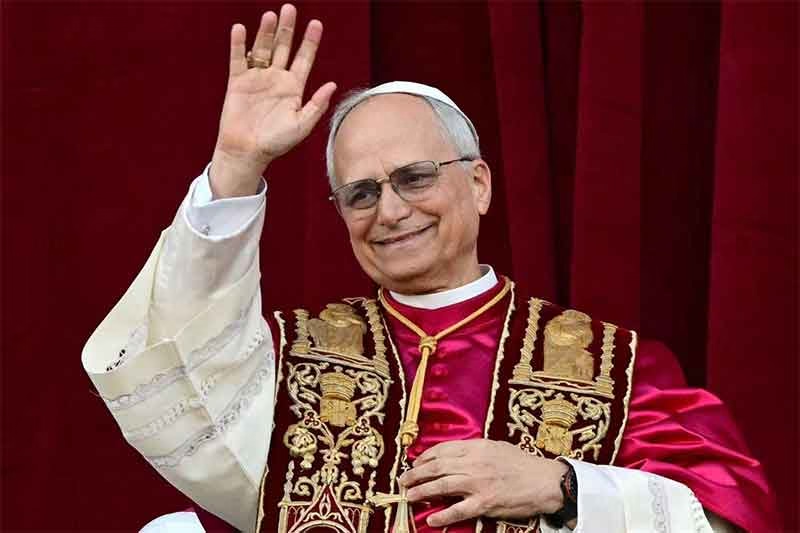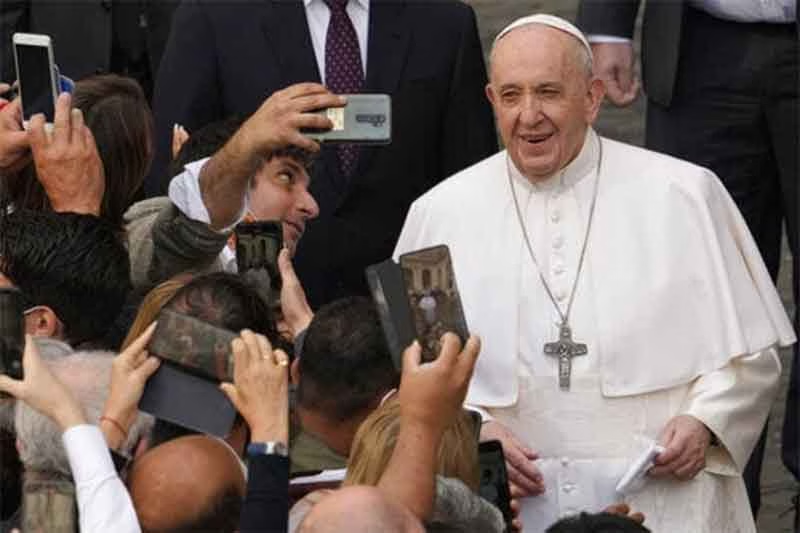
PRINCETON/PROVIDENCE – For centuries, papal elections were also diplomatic wrangles, with the great city-states of Italy (Milan, Florence, and Naples) and then the great powers of Europe (Spain, France, and the Holy Roman Empire) tussling for influence and aiming to install a proxy pontiff. But the pomp, secrecy, and mystique of the process (all on display in the 2024 film Conclave) is designed to show that a divine hand is guiding the outcome. This is no ordinary political event.
By the twentieth century, countries no longer campaigned openly for “their own” pope, but politics was still a major factor. The last time a political leader vetoed a papal candidate was in 1903, when the aged Habsburg emperor, Franz Joseph – a living relic of a bygone age – blocked the leading candidate. Yet despite the absence of political interventions in the process, the choice of pontiff was still seen to reflect not only points of theology but also the state of the world.
Consider Benedict XV, who was elected just after the outbreak of World War I. Though he was sidelined at the Treaty of Versailles, his call for a “Papal peace” resulted in the Vatican negotiating directly with Franz Joseph’s successor. Similarly, Benedict XV’s own successor, Ambrogio Ratti, had been named papal nuncio to Poland, and then refused to leave Warsaw when it was besieged during the Polish-Soviet War of 1920. After establishing himself as a skilled negotiator during a time of rising nationalism and totalitarianism, Ratti was elected as Pius XI in 1922.
Pius XI’s successor, Eugenio Pacelli, represented an even more striking case of an attempt to respond to dangerous political doctrines. By the 1930s, Nazi Germany had begun to pose a profound challenge to civilization and to Christianity. Pacelli knew Germany well, having been nuncio to Bavaria during the 1919 communist revolution and then witnessing the Nazis’ rise. As Pope Pius XII, he sought to wrestle with the German problem, but ultimately left a deeply troubling legacy – probably because he was convinced that confronting Nazi ideology publicly would have undermined his ability to protect Catholics across Europe.
In 2025, anyone thinking about the broader economic or political context of papal selection might believe that Africa is most relevant. Not only does the continent have the world’s fastest-growing population, but it is also one region where Catholicism is strengthening its hold. Hence, during the recent humanitarian crisis in the Democratic Republic of the Congo, Cardinal Fridolin Ambongo Besungu came to be considered “papabile.”
But the Holy Spirit – or was it realpolitik? – decided that the situation in the United States, with its increasingly popular perversion of religion, may pose the gravest threat to the faith. How should the Church tackle a form of Christianity that proclaims itself to be fundamentalist, but is also racist and materialist in the extreme, devoted to a gospel of prosperity that runs counter to everything found in the New Testament? How can it pursue peace in the face of a cynical, transactional approach to international politics – one that is more Machiavellian (though far cruder) than anything that a Borgia prince got up to in the Renaissance?
Can the American threat to Christianity be contained? The papal conclave’s answer is Cardinal Robert Prevost, an American with an extensive career as a missionary in Peru and as a senior official in the Vatican. Succeeding Pope Francis, Prevost is now Pope Leo XIV. Like his predecessor, he has rebuked US Vice President J.D. Vance, a recent Catholic convert, for trying to argue that Christian love should be applied hierarchically, and thus in an exclusionary fashion. “Vance is wrong,” Prevost wrote this past February. “Jesus doesn’t ask us to rank our love for others.”
Leo XIV, through the very choice of his name, builds a bridge back to Leo XIII, the author of the groundbreaking social encyclical Rerum Novarum. That 1891 text, which had a major influence on Francis’s own social teaching, begins by acknowledging the “spirit of revolutionary change which has long been disturbing the nations of the world.” In an increasingly industrial and globalized economy, Leo XIII emphasized social rights and personal dignity for all, and stressed the “obligations of justice” that bring the rich and the working class together. Is Leo XIV saying that we have entered a new chapter of this revolution?
Another namesake of the new pope is the fifth-century pontiff Leo the Great, who centralized papal authority in the midst of political infighting, and allegedly prevented – through skilled diplomacy – Attila the Hun from sacking Rome.
Will the choice of an American pope work? A great deal of Renaissance-style realpolitik would be needed to implement a credible approach to peace and social reconciliation in the age of Donald Trump, Vladimir Putin, and Xi Jinping. Fortunately, Vatican diplomacy can sometimes prove brilliantly successful.
Consider the 1970s, when the fault lines undermining Soviet rule were becoming increasingly visible. Religion looked as if it was fracturing the Soviet Union. In addition to an Islamic revival within the Central Asian and Caucasus regions, there had been a bloody coup in Afghanistan. To counter what they saw as a rising Islamic threat, the Soviets intervened, only to end up bogged down in a costly war.
Meanwhile, in Central and Eastern Europe, rising discontent – with precursors in the violence of the 1956 Hungarian Revolution and the Soviet crackdown on the Prague Spring in 1968 – was fueling strikes and the rise of Solidarity in Poland. The papal conclave’s response was to elect the Archbishop of Krakow, Karol Wojtyła. His emergence as John Paul II brought a sudden illumination: peaceful change and peaceful democratization were still possible.
The first words of Leo XIV’s pontificate were “Peace Be with You.” In the coming years, we will learn whether and how the first American pope rises to the challenge of that promise.
Subscribe to Our Newsletter
Get the latest CounterCurrents updates delivered straight to your inbox.
Harold James, Professor of History and International Affairs at Princeton University, is the author, most recently, of Seven Crashes: The Economic Crises That Shaped Globalization (Yale University Press, 2023).
Montagu James is a PhD student in History at Brown University.
Copyright: Project Syndicate, 2025.
www.project-syndicate.org














































